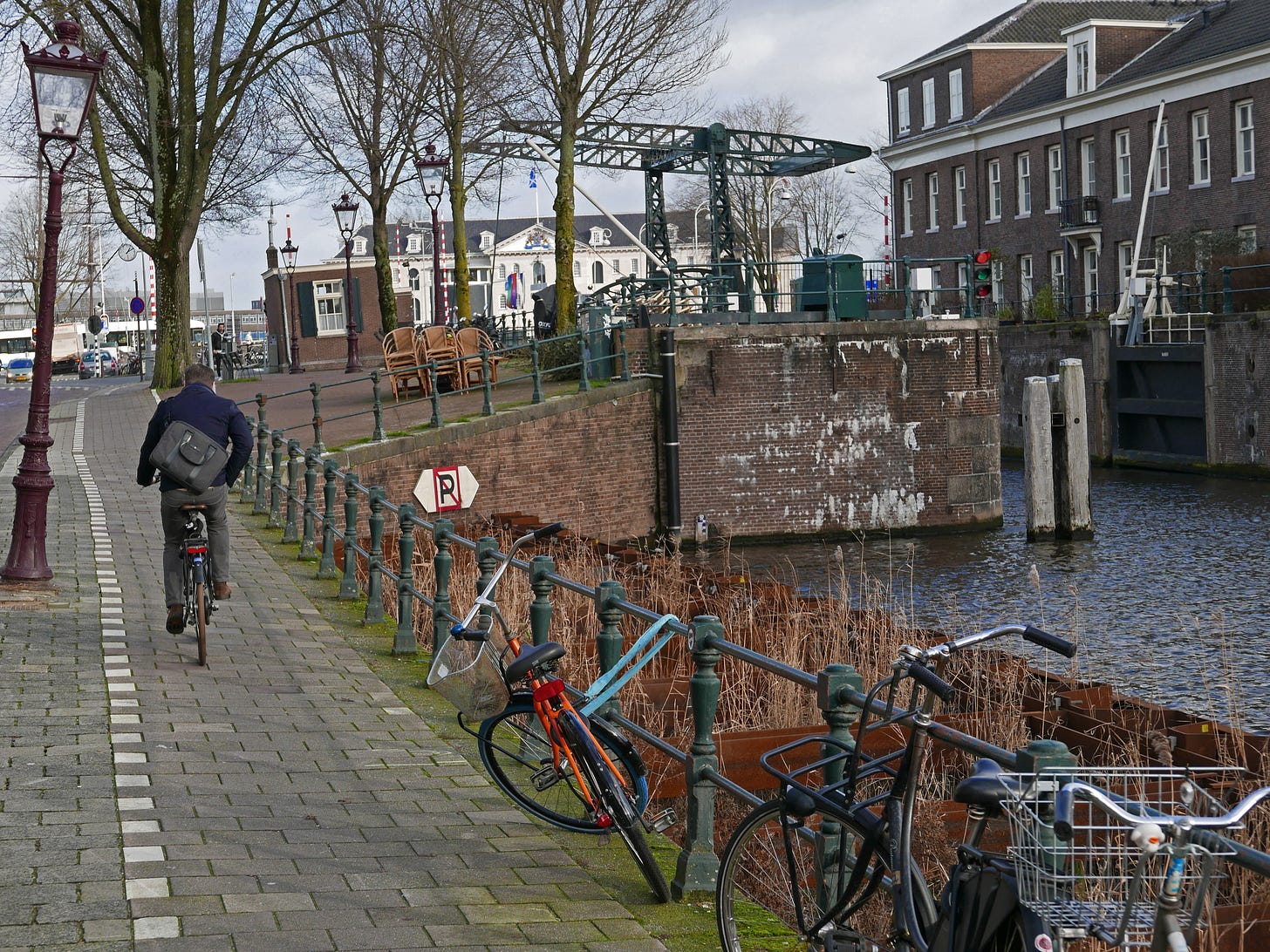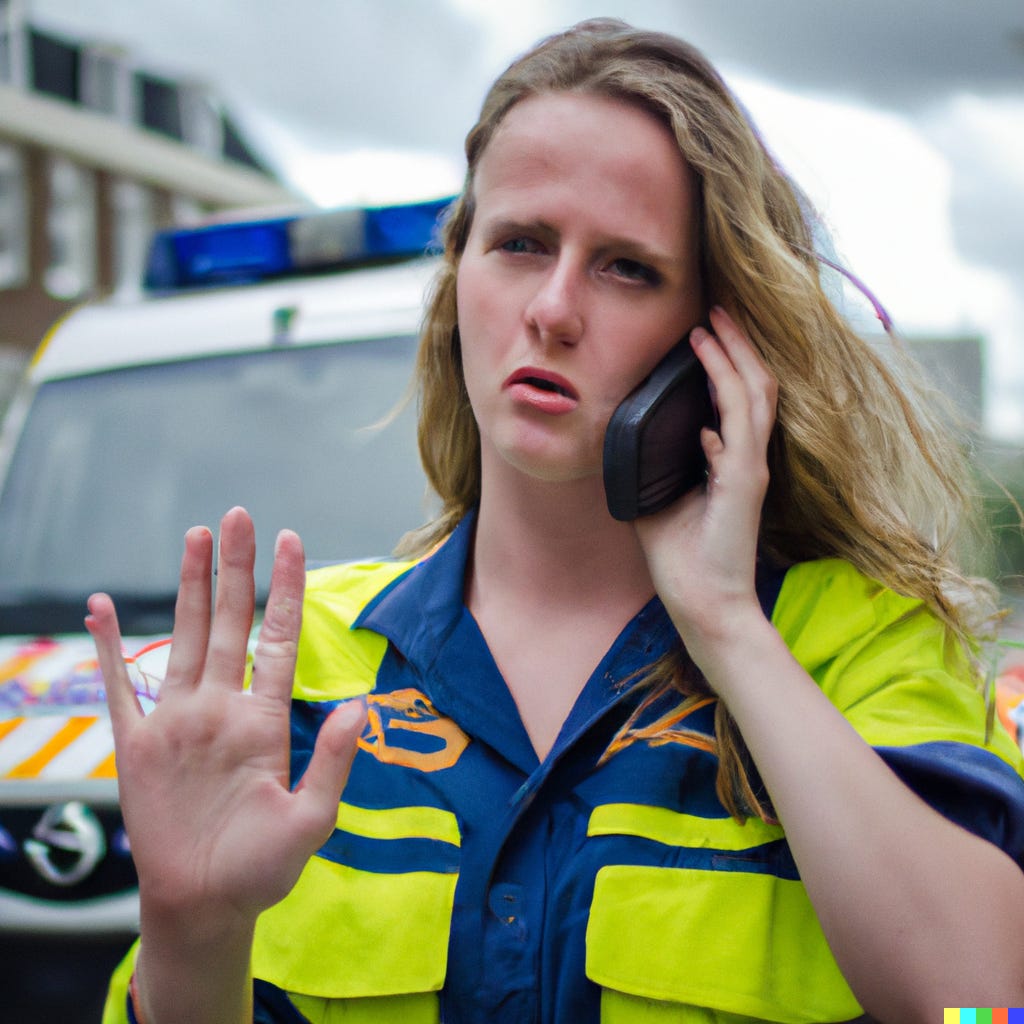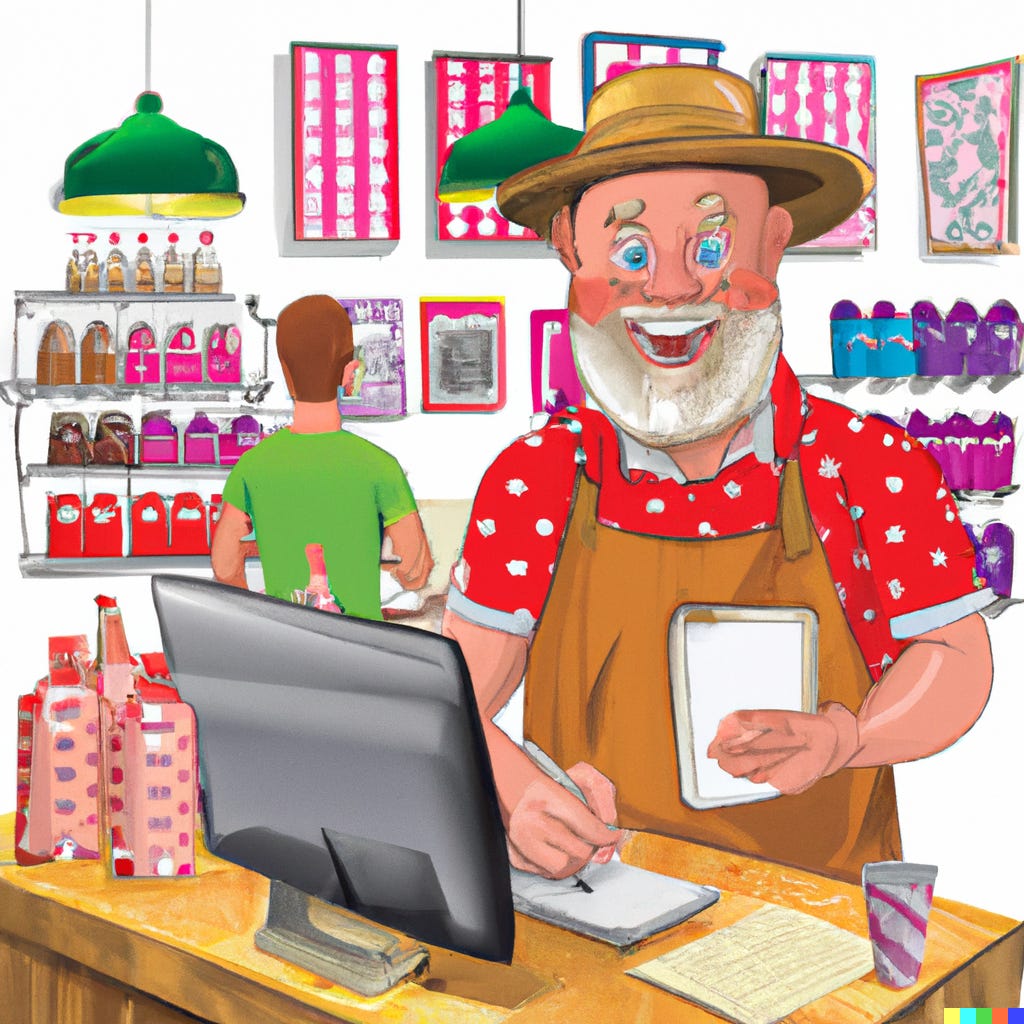Is the rise of Dutch populism the result of forced self-reliance?
The state of the Netherlands in 2023

One morning this year on the canals in Amsterdam, I saw a man get hit by a car. He had been cycling, and the way he hit the ground made it immediately obvious that he wouldn’t get up. I was the only one around. I ran over to help, he struggled to move, bleeding from the head, instantly bruised. I called 112. The operator questioned me. I somehow failed to communicate the severity of the situation. She refused to send an ambulance. Let me tell you—the man needed an ambulance.
“They won’t send an ambulance,” I said to the dazed, bloody man looking up at me from the ground. I was still on the phone.
“IT’S NOT THAT I WON’T,” screamed the operator (really, she screamed at me), “IT’S THAT I CAN’T.”
Was this the state of the Netherlands in 2023? There was a sense this year that the country had become overcrowded, particularly around the election in November, when so much of the public conversation focused on immigration. It wasn’t about whether there were too many foreigners (we all agreed on that), rather which foreigners we needed to get rid of—expats, asylum-seekers, foreign students, nuisance tourists, labor migrants—and how.
I imagine that for most people the sense of the country having reached a sort of population limit had little to do with physical crowdedness. Not many of us are battling it out for bus seats against asylum-seekers in Ter Apel in practice. More often this sense originated in something more subtle, the perceived effects of overcrowding on social services—what I experienced when I tried to call that ambulance.
Dutch public or state-funded agencies are malfunctioning.
Due to staff shortages, the Public Prosecution in the east of the Netherlands no longer prosecutes petty crime. On the other hand, despite doubling staff since 2015, Immigration Services still “cannot possibly keep up with the increase in the number of [asylum] applications.”
There's a shortage of 10,000 primary school teachers. Dutch kids have some of the worst reading skills in all of Europe. The nursing home waitlist is eight months long. There are 80,000 people on the waitlist for mental health care. The average waitlist for social housing? Seven years. Eight percent more Dutch people die of cancer than the European average. The Tax Authority is on the verge of collapse.
I called an Uber to take the accident victim to the hospital myself. I had done something wrong on the phone with 112 and condemned him to not receiving care. He had become my responsibility.
Luckily, two blond, rosy-cheeked police officers who both could not have been more than nineteen years old showed up on the scene and called an ambulance themselves. I cancelled the Uber. The victim thanked me, told me where he worked, and to stop by sometime.
I understand now that the 112 operator’s job in 2023 is to dispatch as few ambulances as possible. They’re not so much dispatchers as they are security guards, standing between help and the people who need it. Because there aren’t enough staff or ambulances. There isn’t enough money.
Whether it’s ambulances, housing, nursing homes, or education, at some point, somehow, if you lived in the Netherlands in 2023, you ran up against a system that didn’t want to deal with you or your problems.
When people start to feel this kind of systemic disregard for their safety and well-being, they go looking for someone to blame, and this is precisely when far-right politicians swoop in and blame foreigners. Whichever type of foreigner infuriates the citizenry the most: Turkish workers during the Brexit campaign; Mexicans for Donald Trump in 2016; Muslims for Pim Fortuyn in the Netherlands in 2002.
It’s a script. Geert Wilders followed it this fall, blaming asylum-seekers, and calling for an “asylum stop.” Close the borders, he would have you believe, and the ambulance will come.
Blaming foreigners is appealing. People do not want to blame the same system they charge with solving their problems for creating their problems. If the rot comes from outside, it’s easier to imagine cutting it out.
The real reason for this year’s social service shortfalls was over a decade of austerity from Mark Rutte’s governments, which sold off 100,000 social housing units, slashed nursing home and health care funding, and on and on, in the name of saving state money, and promoting “self-reliance.”
It’s also a little peculiar that 2023 ended with a sense of overcrowding, considering that the year began with a turbo-charged defense over the vast amounts of space we have in the Netherlands: farmland.
Farmers felt threatened by the government’s bungled plan to reduce nitrogen emissions from livestock farming, and so did non-farmers who identified with the countryside, and in swooped Caroline van der Plas and her farmer party (BBB), winning big in provincial elections in March. The outsiders that van der Plas blamed were: the European Union, Brussels, and out-of-touch Randstad elites.
Later on, I went to see the accident victim at his workplace. He had suffered a concussion; now he was happy to be back on his feet. We talked for a while, recounting our experiences of the accident, and I came to understand that he saw me as a good Samaritan, not the powerless failure I had made myself out to be in my head. I had done my best, I knew, but I didn’t really believe it until he said so.
The American friends I told about this visit were suspicious. They didn’t trust it, or him. Like his invitation might have been some kind of scam. He might’ve wanted money from me.
Americans see danger everywhere.
One of the best things about living in the Netherlands is that it feels much more like a society than America, where individualism and fear is so much more ingrained. There is more trust here. It is more peaceful. Less tense.
When I called that Uber-ambulance myself, I was exercising the kind of money-saving “self-reliance” Mark Rutte might have envisioned. But I did not call it in the spirit of self-reliance. I called it out of panic and desperation.
The severe underfunding of social services is toxic. Not even for the underfunding itself necessarily, but for its political consequences. The populists who attempt to fill the vacuum of care by blaming the “other” polarize us, and threaten the best part of being Dutch, or living in Dutch society—collaborativeness, not fearing anyone in need, and an innate understanding that self-reliance only gets you so far.
🔥 Hot Linkjes
Culture
Santa Claus was originally an Americanization of Sinterklaas, via Dutch settlers in New York. File under: everything is actually Dutch, even the word “cookie.” (koekje). (Ivan Natividad / Berkeley News)
The Dutch have a national initiative against loneliness, which includes programs to connect older people with dogs, students, and supermarket cashiers. (Clare Bates / BBC)
Cute: Deventer is home to the largest Charles Dickens festival in the world, where 125,000 visitors dress up like characters, including Ebenezer Scrooge, Tiny Tim, Queen Victoria, and Miss Havisham. (Senay Boztas / The Guardian)
Politics
“Geert Wilders is in coalition talks but far from forming Dutch government.” A update from the Guardian on the cabinet formation process. Nothing is happening and the talks are “entering a period of ‘radio silence’” until late February. Riveting as always. (Jon Henly)
After an 11-day mission to the Netherlands, the UN Special Rapporteur on Housing, Balakrishnan Rajagopal, also (like me lol) said: “This housing crisis is not due to migration and refugees but due to the failure to recognize and protect housing as a human right.” (Barron’s)
Sport
This year, Amsterdam’s Ajax football team finished at the bottom of the Eredivisie for the first time in the club's history, after willing all six games in their Champions League group in 2021 - 2022. How did things fall apart? It’s complicated. (Tom Hamilton / ESPN)
🥳 Leuke Dingetjes
BBC News reported on the first legal batch of Dutch weed. (Now they need to figure out what to do about cocaine…)
A new track from Eefje de Visser
de Visser is one of my fav Dutch artists. This is a new live recording of one of the top singles off her 2016 album Nachtlicht.
*all typos in this post are on purpose





Another amazing issue, and this all is so worrisome. "The severe underfunding of social services is toxic. Not even for the underfunding itself necessarily, but for its political consequences." this is exactly it.
Nice! As an immigrant first in US and now in Netherlands, I love the Netherlands and things that make it peaceful living here. I hope the Dutch do not fall for the same rhetoric like Trump in US.